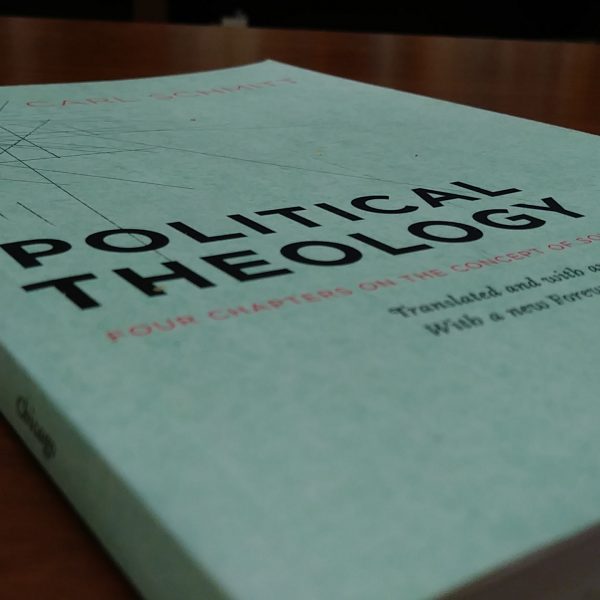
The field has often shown a Eurocentric bias…As such, the field has left out important reflections on political theology during the anticolonial and postcolonial struggles in the Global South.

Join a reading group sponsored by the Political Theology Network treating a classic text.

Political Theology Must Follow Agamben’s “Double Paradigm” of Sovereignty. The following is the guest editorial for the current issue of the print journal Political Theology (Volume 19, Issue 1, February 2018).

In Romans, Paul speaks of a God of reconciliation, who makes friends of enemies. Principles of reconciliation and of the love of enemies have often been quarantined from the political realm in systems of political thought that prioritize the enemy-friend polarity. However, a politics of love for enemies and of reconciliation with a creation from which we have become alienated may never have been more urgent.





